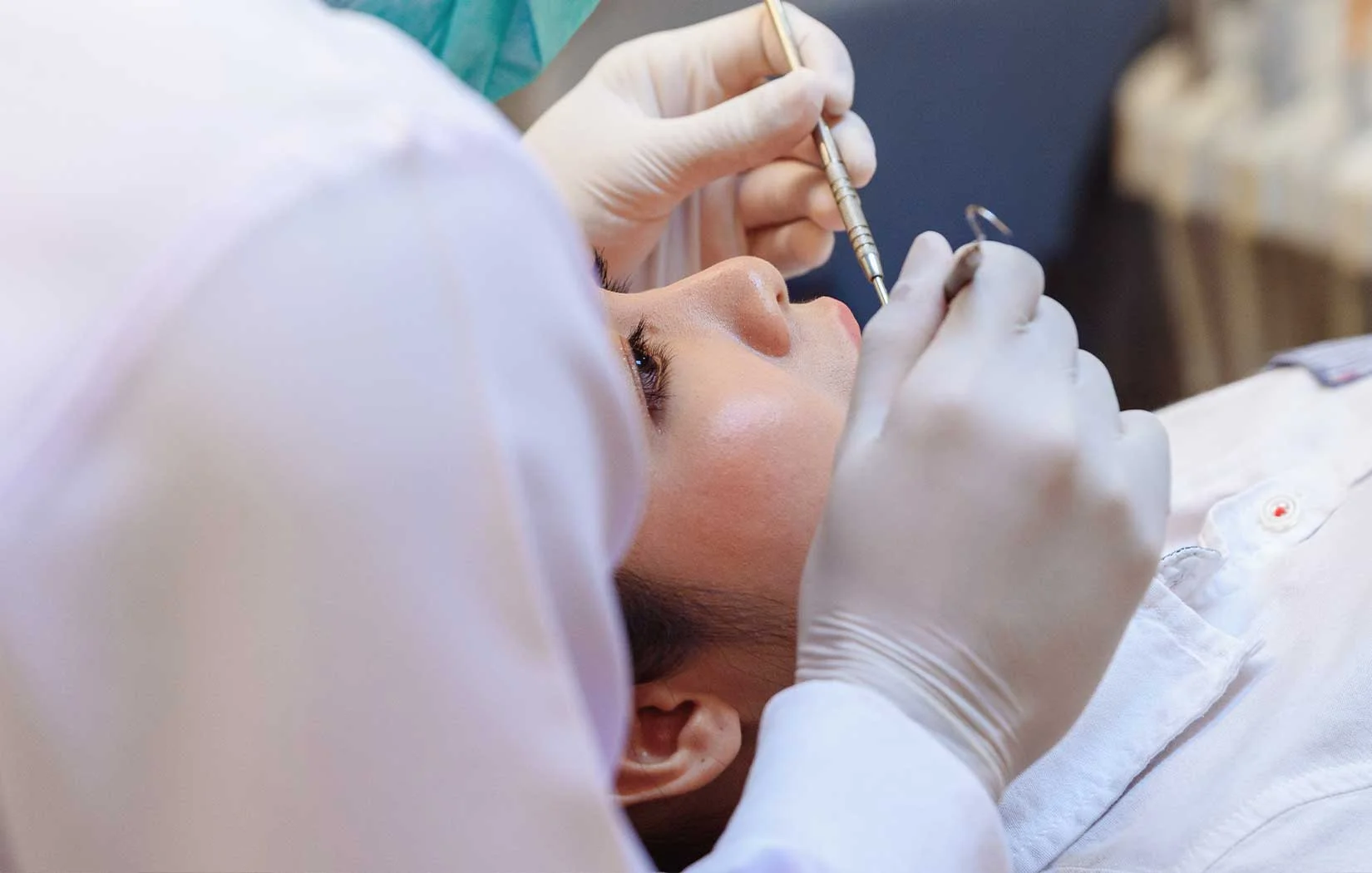Oral cancer develops in the tissues of your mouth or throat. It can occur on your lips, tongue, gums, tonsils, and the roof or floor of your mouth. It is estimated that 54,000 people are diagnosed with oral cancer annually. The good news is that it can often be treated if caught early.
Some common signs include persistent sores or ulcers, red or white patches, difficulty swallowing, unexplained bleeding or numbness, and lumps or bumps on your neck or inside your mouth.
What Are the Risk Factors that Increase Your Chances of Developing Oral Cancer?
While anyone can develop oral cancer, certain risk factors may increase your chances. The most common risk factor is tobacco use, including cigarettes, cigars, pipes, and smokeless tobacco. Heavy alcohol consumption also increases your risk, especially with tobacco use. Other risks include a family history of oral cancer, exposure to the human papillomavirus (HPV), and a weakened immune system.
It is important to know these risk factors and take steps to reduce your chances of developing oral cancer.
It’s vital to note that even if you don’t have any of these risk factors, you should still be aware of the symptoms and get regular check-ups with your dentist or doctor.
What is the Importance of Oral Cancer Screening?
Oral cancer can have devastating consequences if not caught early. That’s why getting regular oral cancer screening in Brentwood is so important, even if you don’t think you’re at high risk for the disease.
One of the key benefits of oral cancer screening is that it allows your dentist or doctor to detect signs of the disease in its earliest stages. This makes treatment much more effective and improves your chances of successful recovery. Additionally, oral cancer screening can give you peace of mind by helping you understand your risk level for the disease and taking appropriate steps to reduce your overall risk.
How Often Should You Get Oral Cancer Screening?
When it comes to oral cancer screening, the frequency with which often you should get checked is an important consideration. It’s recommended that individuals at average risk for oral cancer undergo yearly screening during their routine dental check-ups. However, if you have certain risk factors, such as smoking or alcohol use, your dentist may recommend more frequent screenings.
It’s also important to note that regular screenings are not just for those who exhibit symptoms or feel pain in their mouth. Many cases of oral cancer go undetected because they don’t cause noticeable symptoms until later stages. Therefore, it’s crucial to prioritize preventative care and attend regular check-ups with your dental professional. Don’t hesitate to ask a dentist near you about their oral cancer screening frequency recommendations based on your individual needs and risk factors.
What Tests Does a Dentist Conduct to Detect Oral Cancer?
One of the first tests your dentist in 90049 will likely conduct is a physical exam of your mouth and neck area. During this exam, they will check for any unusual lumps or bumps in your mouth or neck that could indicate the presence of cancerous cells.
In addition to the physical exam, your dentist may also conduct a visual test using special tools like mirrors and lights to examine the inside of your mouth more closely. This allows them to look for any changes or abnormalities in the tissue lining your mouth and throat, which can indicate cancerous growth.
If necessary, your dentist may also take a biopsy of any suspicious areas for further testing or order an x-ray to better view the bones in your jaw and skull.
Tips on Maintaining Good Oral Health & Preventing the Risk of Developing Oral Cancer
Preventing oral cancer is all about maintaining good oral health. Regular dental check-ups are essential for preventing serious issues from developing in your mouth.
Additionally, avoid smoking or using tobacco products altogether.
Eating fruits and vegetables can also help prevent oral cancer. The vitamins and nutrients found in these foods have been shown to boost immunity and fight off harmful cells that may lead to cancer.
Conclusion
Oral cancer can have severe consequences if left undiagnosed and untreated. It’s vital to be aware of the symptoms and risk factors associated with this condition to take the necessary steps to treat it.
Visit Brentwood Dental Art for more information about oral cancer screening and what to expect.

